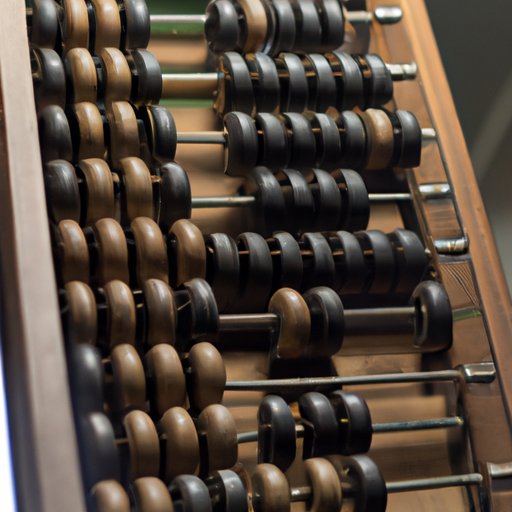Introduction
The calculator is a device that has become an integral part of daily life. It is used by students of all ages, professionals, and hobbyists alike. But who invented the calculator and what was their motivation? In this article, we will explore the history of the calculator, including the pioneers behind its invention, and the impact it has had on society today.
A Look at the History of the Calculator and its Inventors
The history of the calculator dates back to the late 1600s when the first mechanical calculators were developed. The earliest calculators were created by mathematicians such as Blaise Pascal and Gottfried Wilhelm Leibniz, who sought to create devices that could help them with complex calculations. These early calculators were large and cumbersome, but they laid the foundation for future inventions.
In the 19th century, other inventors began to make improvements to the design of the calculator. Charles Babbage is credited with creating the first programmable calculator, while Willgodt Odhner developed a portable version of the device. By the mid-20th century, electronic calculators had been developed, allowing for more complex calculations to be done with greater speed and accuracy.

Exploring the Development of the Calculator Through Time
Since its invention, the calculator has undergone many changes and improvements. In the 1950s, the first transistorized calculators hit the market, eliminating the need for vacuum tubes and making them much smaller and lighter. In the 1970s, the introduction of integrated circuits allowed for even more powerful calculators, with faster processing speeds and greater memory capacity.
Today, calculators come in a variety of shapes and sizes, ranging from the pocket-sized versions to desktop models. They are also capable of performing a wide range of functions, from basic arithmetic to complex scientific equations. But who are the people responsible for the invention of the calculator?

Uncovering the People Responsible for the Invention of the Calculator
The invention of the calculator is largely credited to the work of mathematicians, engineers, and inventors over the centuries. Blaise Pascal and Gottfried Wilhelm Leibniz are two of the most well-known figures in the history of the calculator. Pascal developed the first mechanical calculator in 1642, while Leibniz created a more advanced version in 1694. Both men sought to create a device that would make it easier to solve complex mathematical equations.
Charles Babbage is another important figure in the history of the calculator. He developed the Difference Engine in 1822, which was the first programmable calculator. This device was capable of performing addition, subtraction, multiplication, and division, and was used by the British government for various calculations. Babbage’s invention paved the way for the development of modern computers.
Willgodt Odhner is another important figure in the history of the calculator. He developed the Arithmometer in 1874, which was the first commercially successful calculator. This device was capable of performing complex calculations with greater speed and accuracy than previous models. Odhner’s invention was widely used by businesses and governments around the world.
Conclusion
The invention of the calculator has had a profound impact on society. It has allowed us to perform complex calculations with greater speed and accuracy, and has made it easier for us to solve mathematical equations. The invention of the calculator is credited to a number of mathematicians, engineers, and inventors, including Blaise Pascal, Gottfried Wilhelm Leibniz, Charles Babbage, and Willgodt Odhner. Their contributions have helped shape the calculator into the device we know and use today.
(Note: Is this article not meeting your expectations? Do you have knowledge or insights to share? Unlock new opportunities and expand your reach by joining our authors team. Click Registration to join us and share your expertise with our readers.)
